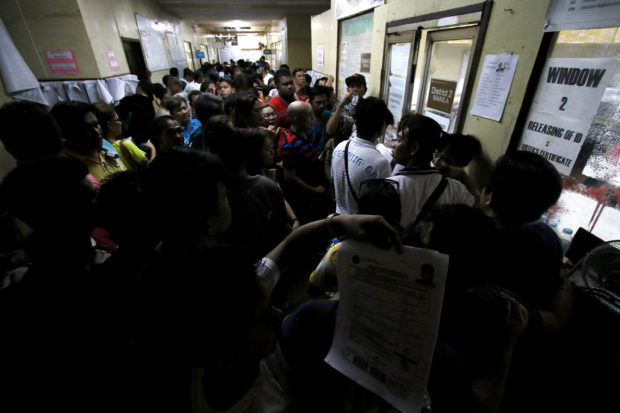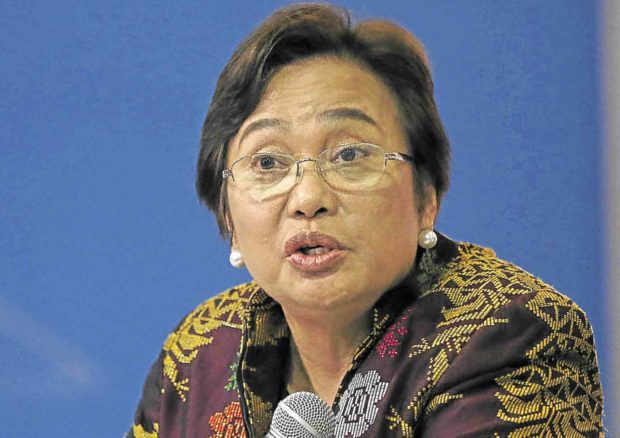Undemocratic? Bill setting rules against ‘nuisance’ bets gets House nod

PUTTING THE BRAKES ON DEMOCRACY: On the third reading, the House of Representatives passed a measure which sets out how to call aspiring politicians nuisances. INQUIRER FILE PHOTO / RICHARD A. REYES
MANILA, Philippines — The House of Representatives has passed a measure on third reading setting forth the procedures for declaring aspiring politicians nuisance candidates.
During the session on Tuesday, 191 lawmakers voted in favor of approving House Bill No. 9557, which would amend the Omnibus Election Code of the Philippines if signed into law.
The bill stipulates that petitions to declare a registered candidate a nuisance must be filed five days after the last date for filing of certificates of candidacy, with the Commission on Election (Comelec) having three days after the filing of the complaint to summon the candidate and the complainant.
Upon receipt of the petition, both respondents and petitioners would have three working days to respond.
“The Commission may designate any of its officials who is a lawyer to hear the case and receive evidence to determine the existence of malice and bad faith in the filing of the certificate of candidacy in question,” the bill said.
“The proceedings shall be summary in nature, in lieu of oral testimonies, the parties may be required to submit position papers, affidavits or counter-affidavits, and other documentary evidence. The hearing officer shall immediately submit to the commission the findings, reports, and recommendations within five days from the completion of such a submission of documentary evidence,” it added.
The bill also requires a penalty worth P100,000 for anyone who attempts to file a certificate of candidacy “to put the election process in mockery or disrepute or to cause confusion among the voters by the similarity of the names of the registered candidates.”
Similarly, people named in the verified petition who were found to have conspired with that person to file his or her certificate of candidacy would also face a fine of P100,000.
“The Commission shall impose a fine of not less than P100,000 on a nuisance candidate and any person named in the verified petition and found to have conspired with or induced the candidate to file such a certificate,” the bill read.
As in the past, the country has been plagued by nuisance candidates, especially during the campaign season for the presidential elections, with a large number of candidates trooping to the Comelec office in Intramuros, Metro Manila.
The proposed law is not unanimously endorsed by election experts or Comelec officials: Comelec Commissioner Rowena Guanzon said in an interview in October 2018 that penalizing nuisance candidates might be discriminatory.
Guianzon was referring to the Senate Bill 911 issued by Senator Win Gatchalian, which proposes to impose a fine of P50,000 on anyone filing their Certificate of Candidacy in an attempt to disrespect the electoral process, which is only half of what the House bill contains.
READ: Bill vs nuisance candidates ‘discriminatory’ — Comelec exec
Guanzon’s main objection to the bill is that it would disadvantage poor candidates by causing them to be hesitant to file certificates of candidates for fear of being deemed nuisance candidates.
To be eligible to seek the office of the president under the 1987 Constitution, a person must be a natural-born Filipino citizen, a registered voter, capable of reading and writing and at least forty years of age at the time of the general election.
To achieve equality of opportunity for every Filipino, regardless of social status, basic qualifications were set.
